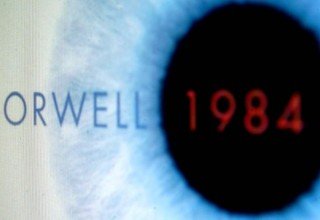
By Robert L. Borosage at Huffington Post
Senate Republicans have perfected the art of saying no. But in blocking a debate on financial reform, they have begun to imitate Goldman Sachs traders, selling positions that they are betting against.
Blocking financial reform is, not surprisingly, financially rewarding, as Republican leaders lease themselves to Wall Street as congressional security guards. But with the public outraged at the human devastation caused by the financial crisis, and the bailout of the big banks, with the Wall Street ethics (increasingly an oxymoron) in full display in the Goldman Sachs and Washington Mutual hearings, being in the pocket of the big banks isn’t exactly a popular platform for re-election.
So instead, Republicans are expressing their inner populism. They rail at the financial reform bill (the Dodd bill) as too weak, designed to ensure more taxpayer bailouts. “We cannot allow endless taxpayer-funded bailouts for big Wall Street banks. And that’s why we must not pass the financial reform bill that’s about to hit the floor,” says Senator Mitch McConnell, unfortunately tracking almost word for word the infamous Frank Luntz talking points on how to kill financial reform. Republicans pose like Horatio at the bridge, defending us against future bailouts. For McConnell, and Republican Senate Campaign Chair Tom Coburn to come straight from a Wall Street fundraiser to parade as the scourges of Wall Street may lack a certain authenticity, but Goldman Sachs traders aren’t the only insiders who think the rubes will buy anything.
Now Republicans have done us a favor. They’ve published a Republican alternative on financial reform, laying out the differences. Not surprisingly, much of it tracks the Dodd Bill, since a good portion of that was forged in bipartisan negotiations. It adds language calling on the Treasury Secretary to present a plan on Freddy Mac and Fannie Mae, which he’s promised to do. It puts somewhat different limits on the Federal Reserve. But its major differences come in two major areas: how to pay the costs associated with shutting down failed big banks, and on consumer financial protection.
The Dodd bill calls for the banks to ante up a $50 billion fund. This would be used by the FDIC if it were forced to take over a failing big financial institution. Unlike the last bailout, where the banks were rescued but not reorganized and taxpayers paid the bill, in the Dodd bill, a troubled big bank would be treated basically like smaller insolvent banks. The FDIC would take it over, fire the management, and reorganize it, liquidating assets, merging with other banks. The shareholders would lose their investment; the creditors would take a hit. The bank financed fund would cover any costs along the way.
For all of Republican warnings about the FDIC’s incompetence, the Republican alternative essentially calls for the same procedure. The FDIC would be named receiver. It would liquidate the assets, or transfer them to a “bridge bank” and sell them. It would fire the management; operate the bank if necessary while dispersing its assets. Shareholders would be wiped out; creditors would take a hit. But in some cases, the FDIC will have to take “emergency action to stabilize” the bank, “issuing guarantees, purchasing assets, and advancing funds to creditors.” The FDIC would seek to recoup this money from creditors and shareholders in the ensuing liquidation.
Where would that initial money come from? Here’s where Republicans pay tribute to George Orwell. The money won’t come from a fund paid for by the banks. Republicans denounce that as leading to “taxpayer funded bailouts.” No, the money would come from, well, taxpayers, and thereby save us from taxpayer funded bailouts. War is peace. Black is White. Are Republicans a great party or what?
The second major Republican initiative is to protect the banks from consumer protection. No really. Instead of an independent agency which the House called for, or a strong agency lodged in the Fed as the Dodd bill calls for, Republicans would create a “Council for Consumer Financial Protection” to promulgate rules for consumer financial protection. It would have three regulators and three consumer advocates and is charged with insuring that all rules and regulations “consider the safety and soundness” of the banks.
That, of course, is essentially what we have now where the various regulators have the authority to protect consumers, but are focused on the safety and soundness of the banks. The result is that they sat on their hands as consumers got gouged by payday lenders, rapacious mortgage brokers, credit card companies, used car dealers and more. (Of course, they didn’t do much on the safety and soundness of banks either).
So when you watch Republicans join in lock step once more to block opening the debate on financial reform, understand what their objections are. They want taxpayers, not banks, to front the costs of resolving failed big banks. And they want greater protection for the banks from consumer protection.
Which side are they on?
ATTENTION READERS
We See The World From All Sides and Want YOU To Be Fully InformedIn fact, intentional disinformation is a disgraceful scourge in media today. So to assuage any possible errant incorrect information posted herein, we strongly encourage you to seek corroboration from other non-VT sources before forming an educated opinion.
About VT - Policies & Disclosures - Comment Policy



